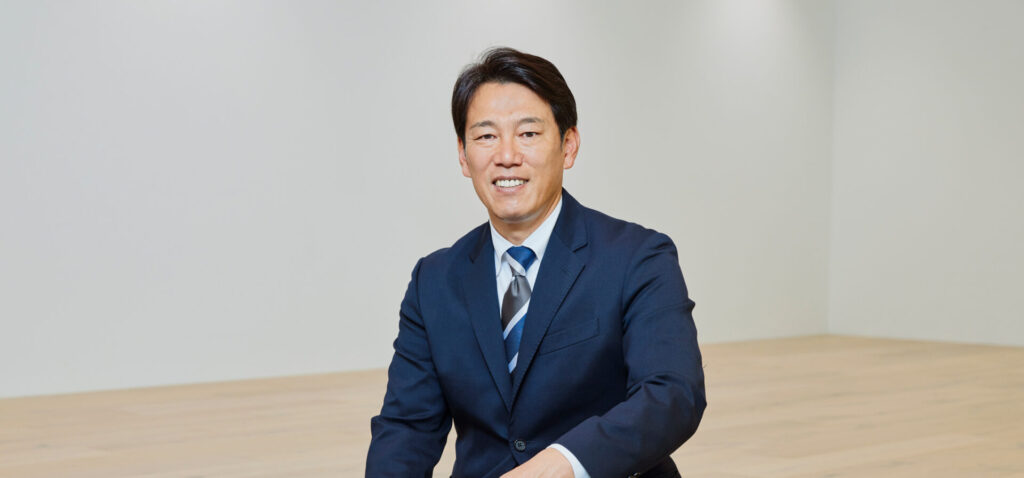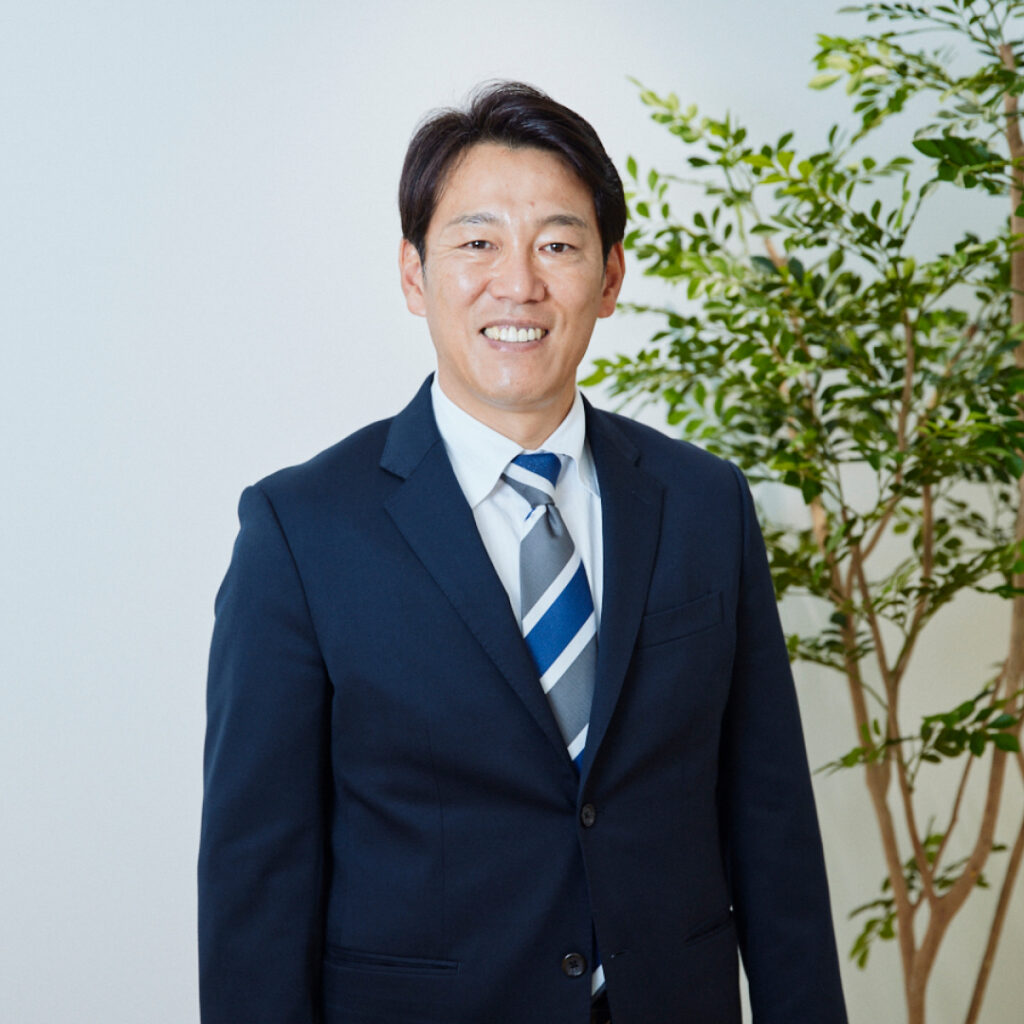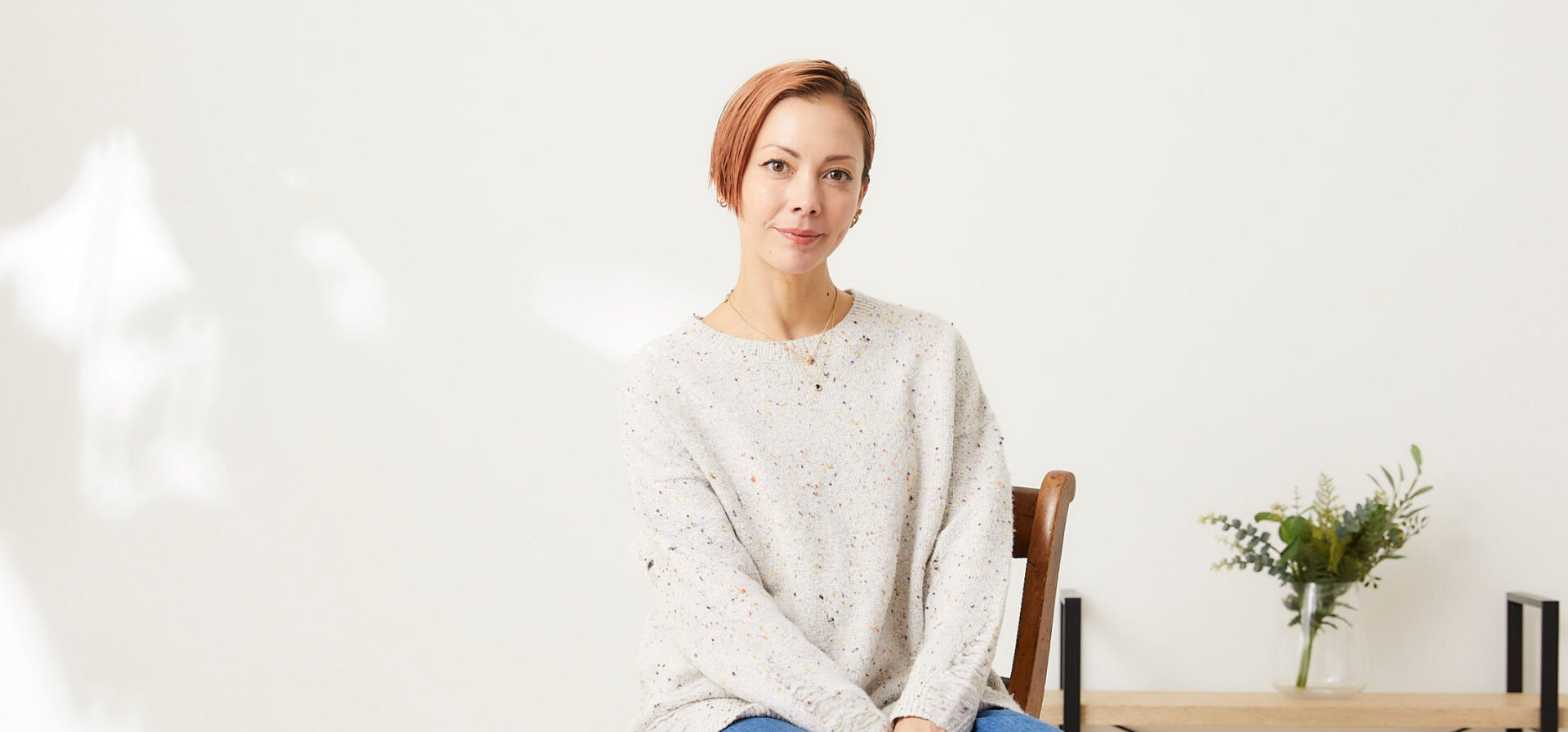[Former professional baseball player Hirokazu Ibata] “Sleep” creates good performance! Sleep environment creation that I was particular about since I was an active player
2024.05.10
How do professionals who continue to challenge themselves in various fields such as sports, business, art, and culture approach their bodies and unleash their potential? We ask about the "conditioning" they practice in their lifestyles.
This time, we spoke with Hirokazu Ibata, who became a coach after retiring from professional baseball and continues to be active in the baseball world, about his conditioning techniques and his commitment to "sleep."
*Conditioning, as defined by TENTIAL, is the act of optimizing all factors related to one's physical condition to improve life performance.
"this is Bad" a Sense of Crisis Felt after Retiring from Active Duty
── Mr. Ibata, how conscious are you of your own conditioning now?
I retired from professional baseball at the age of 40. The following year, I became a coach, and I was conscious of maintaining the same condition as when I was an active player as much as possible so that I would not be tired the next day. However, about five years ago, I took off my uniform and became less conscious of conditioning, and it became difficult to maintain my figure (laughs).
I thought, "This is bad" around 2021, when the Tokyo Olympics were held. From there, I started paying attention to diet and sleep as much as when I was an active player. Due to the nature of my job, I am in an environment where it is difficult to lead a regular life.
── How much different is your diet now compared to when you were an active player?
It's less than half now (laughs). When I was an active player, I would lose weight every game if I didn't pay attention, so I ate more than four meals a day. That's how I was finally able to maintain my weight. Once you get into that habit, you end up eating the same way even after you quit baseball. If you do that, you'll gain 10 kilos in no time. I didn't feel like I was gaining that much, but when I noticed, I couldn't fit into the clothes I used to wear. I noticed when I stepped on the scale, and from there I started to lose weight in earnest.

── Did you also restrict your diet until you returned to your current weight?
Yes. I lost about 7 or 8 kilos in a month, so I did a fair amount of fasting. For the first three days, I only consumed enzymes. After detoxifying my body once, I started eating little by little.
From there, I calmed down, and now, if I think, "I've gained a little weight?", I can get back to normal by restricting my diet for about 2 or 3 days.
── How do you control the amount and quality of your diet now?
I'm on a business trip for about half of the month, so I have to control myself when I eat out more often. If I think, "I have a dinner party tonight," I'll make breakfast and lunch a little lighter or skip them. Or, I adjust by keeping my food intake low the day after I eat too much (laughs). However, even if I can control the "quantity" myself, it's difficult to control the "quality" of my meals, especially in the case of dinner parties.
Commitment to Getting "Good Sleep"
── Do you think sleep also helps maintain your weight?
I think so. When I get enough sleep, I feel like I've lost weight because my basal metabolism consumes calories. Conversely, if I can't get enough sleep, I tend to gain weight and feel sluggish. My children are still young, so when I'm putting them to sleep, I sometimes fall asleep myself (laughs). I feel more refreshed in the morning and my body feels lighter when that happens.
In that sense, my life rhythm is more stable when I'm with my family. I wake up early and have breakfast with everyone at 6:00 a.m. Then I'm at my best by 9:00 a.m. However, when it's baseball season and the game ends around 10:00 p.m., and then I have dinner and go to bed after midnight, even if I get enough sleep, my body feels sluggish or something hurts. That's right, something always hurts since I got older (laughs).

── By the way, how did you sleep when you were an active player?
I made sure to get 8 hours of sleep when I was an active player. It's just right to wake up 6 hours before the game starts.
For example, night games often start at 6:00 p.m., but if I wake up early on those days, I get sleepy during the game (laughs). So I made sure to wake up 6 hours before the night game started, at 12:00 p.m. With 8 hours of sleep, I would go to bed at 4:00 a.m., but that was hard at first. The previous day's game ends and I eat dinner, which is usually around 1:00 a.m., but I had to try to stay awake until 4:00 a.m. It was really hard until I got used to it, but once I got into that rhythm, I felt great.
── What do you keep in mind or are particular about in order to get good sleep?
When I was an active player, I stayed at various hotels all over the country, so I could tell the difference, like, "This hotel's mattress is comfortable" or "This pillow suits me." Now, I order the mattresses that I especially liked from those hotels. It's obviously different.
Since then, when I have to stay at a hotel that has bedding that doesn't suit me, I bring my mattress from home. I think it depends on the individual and there are also preferences, but I seem to prefer a firmer mattress.
── What about pillows?
I prefer a low, old-fashioned pillow filled with buckwheat hulls. When it comes to pillows, I used to bring my own pillow with me whenever I went on an expedition when I was an active player. I don't do that anymore, though.
Getting "good sleep" definitely had a positive impact on my performance. The condition of my body when I woke up in the morning was obviously different. If I thought, "My back hurts a little today" or "I slept wrong," it would affect my play.

── Do you currently work on conditioning with your family?
I have three children, and our life cycle is centered around our oldest child, who plays baseball (laughs). My oldest son will be in junior high school this year, but he started to be particular about his health management when he was in the fifth grade of elementary school (laughs). He seems to have been thoroughly taught the importance of conditioning, and he is careful about his sleep and diet. By the way, my two daughters also attend dance school, so I think they like to move their bodies.
── What specific advice does your son get (from the baseball team)?
It's basic things like, "Make sure to get enough protein after exercising." He eats less during periods when he doesn't go to school, such as summer vacation, but when he's playing baseball as much as he can, he eats so much that I think he's overeating. At first, he forced himself to eat even when he was tired, but as he got used to it, he was able to get protein no matter how hard it was. I also reaffirmed the importance of continuing.
About TENTIAL
── By the way, I heard that you and your family love TENTIAL products.
My wife, my oldest son, and I wear BAKUNE to sleep. My oldest son tends to get hot, so he wears a thinner type than we do. Until now, I used to wear whatever sweats I had at home, thinking, "It's all the same no matter what I wear," but after I gave him TENTIAL, he started to choose what to wear. His body got bigger and it was the perfect time to buy a new bed. That may have been the trigger for him to change his awareness of his own health.

── Mr. Ibata, what do you think about actually wearing TENTIAL?
I wear BAKUNE for fall and winter, and the raised fabric feels comfortable on my skin. I don't know if I'm sweating when I wake up, but it must be because it absorbs it well. It's also great that I can wake up just right, neither hot nor cold. I used to wake up at least once in the middle of the night, but now I sleep soundly until morning because it's so comfortable. I didn't used to wake up very well, but now I wake up very well. It's no longer a pain to take my daughter to school.
── Do you think TENTIAL, a recovery wear, supports the sleep environment?
I definitely think so. That's the big difference from ordinary sweats. The turning over is also well thought out, so I feel that it is made with thorough pursuit.
── What does your wife say about TENTIAL products?
My wife is extremely sensitive to the cold, and she used to wear so many layers that she was always puffy (laughs). But now she only wears one layer of underwear inside TENTIAL, so I think it's quite warm. It's better for your body to sleep in clothes that are easy to move in.
── Are there any other TENTIAL products that you are interested in?
I'm interested in golf insoles right now. I've heard rumors that wearing them improves your posture and makes you fly 20 yards further... (laughs). I'm particular about sleep, so I'm also interested in mattresses.
── Finally, please give a message to people who want to improve their conditioning and enrich their work and lifestyle.
Sleep is a very important activity for humans, accounting for nearly a third of the day. I confidently recommend TENTIAL, which supports that. Why not try it once to make your daily life richer and more fulfilling?

Hirokazu Ibata, former professional baseball player
Former professional baseball player (infielder, right-handed batter), baseball commentator, and baseball critic from Kawasaki Ward, Kawasaki City, Kanagawa Prefecture. During his time with the Chunichi Dragons, he was known as the "Araiba Combo" along with his teammate Masahiro Araki. He currently serves as the manager of the Japanese national baseball team. His wife is former TV Asahi announcer Akiko Kono.
Contact Us
For inquiries or consultations regarding our products, services, or media, please contact us here.


![[Model Rena Takeshita] “Quitting my job was not an option.” How I balance modeling and childcare without pushing myself too hard](https://corp.tential.jp/wp-content/uploads/2024/03/takeshita_fv2-1-1.jpg)

![[Professional Baseball Player Tsuyoshi Wada] Secrets to Maintaining Health for the Longest Active Record](https://corp.tential.jp/wp-content/uploads/2024/02/231208_tential49607-2.jpg)

![[Actress Umika Kawashima] Gut health, warming activities, and moderate exercise. “Consistency” in small things leads to results](https://corp.tential.jp/wp-content/uploads/2024/08/OGP_本番_川島海荷_1200×630-3.jpg)
![[Actor Rosa Kato] Because the Whole Family is Busy, those Rare Meals We Share around the Table Mean the Most](https://corp.tential.jp/wp-content/uploads/2025/03/FV加藤ローサ_本番4402-3.jpg)
![[Female Shogi Player Manao Kagawa] “Shogi is an Endless Marathon” – What You Can Do Now for Conditioning](https://corp.tential.jp/wp-content/uploads/2025/03/OGP_香川愛生_本番_1200×630.jpg)
![[Free Announcer Reina Sumi] Struggling with Childcare for the First Time! “What I Need most Right Now is Sleep.”](https://corp.tential.jp/wp-content/uploads/2024/12/FV鷲見玲奈あたり_064.jpg)
![[Para Alpine Skier Momoka Muraoka] Harsh winter competition. Daily routines that maintain performance even during exhausting tours](https://corp.tential.jp/wp-content/uploads/2024/11/FV_村岡桃佳_本番_2160×1008.jpg)
![[Artist Yuta Okuda] Sleep is the most important thing! What are his unique conditioning techniques for maintaining performance?](https://corp.tential.jp/wp-content/uploads/2024/10/FV_奥田雄太_本番_2160×1008-1.jpg)